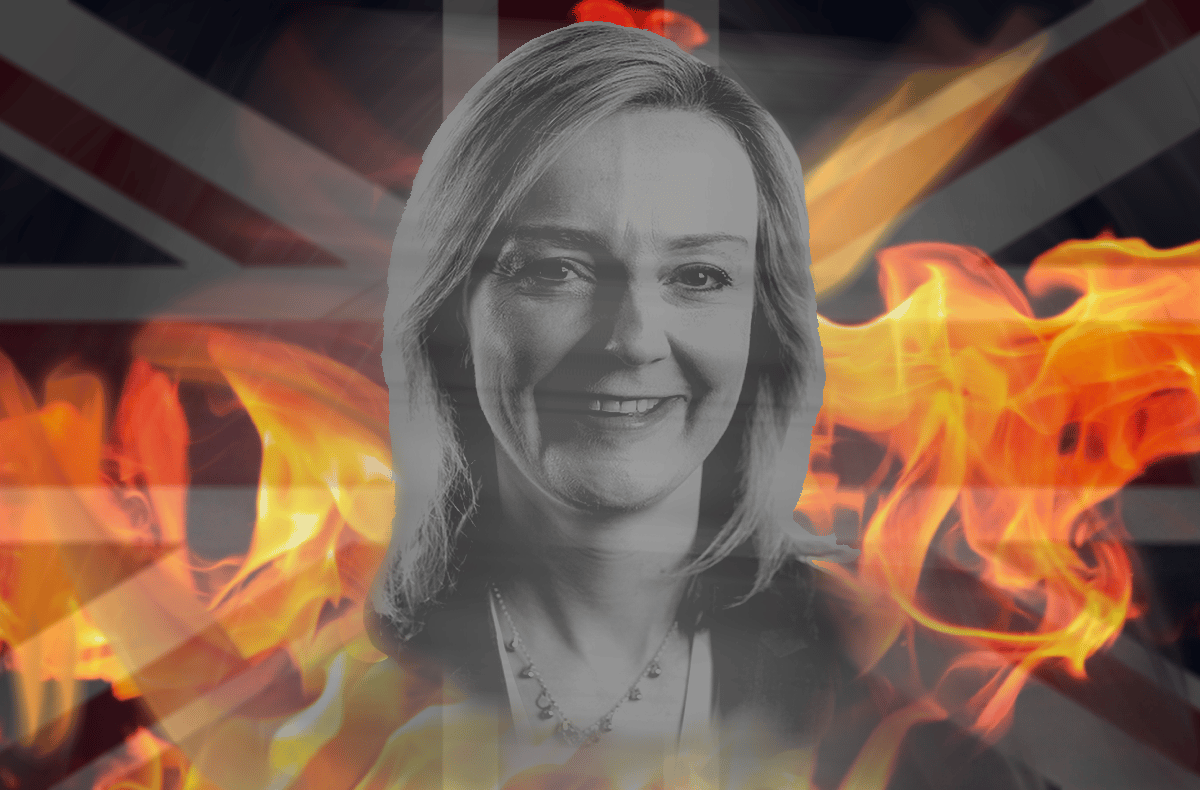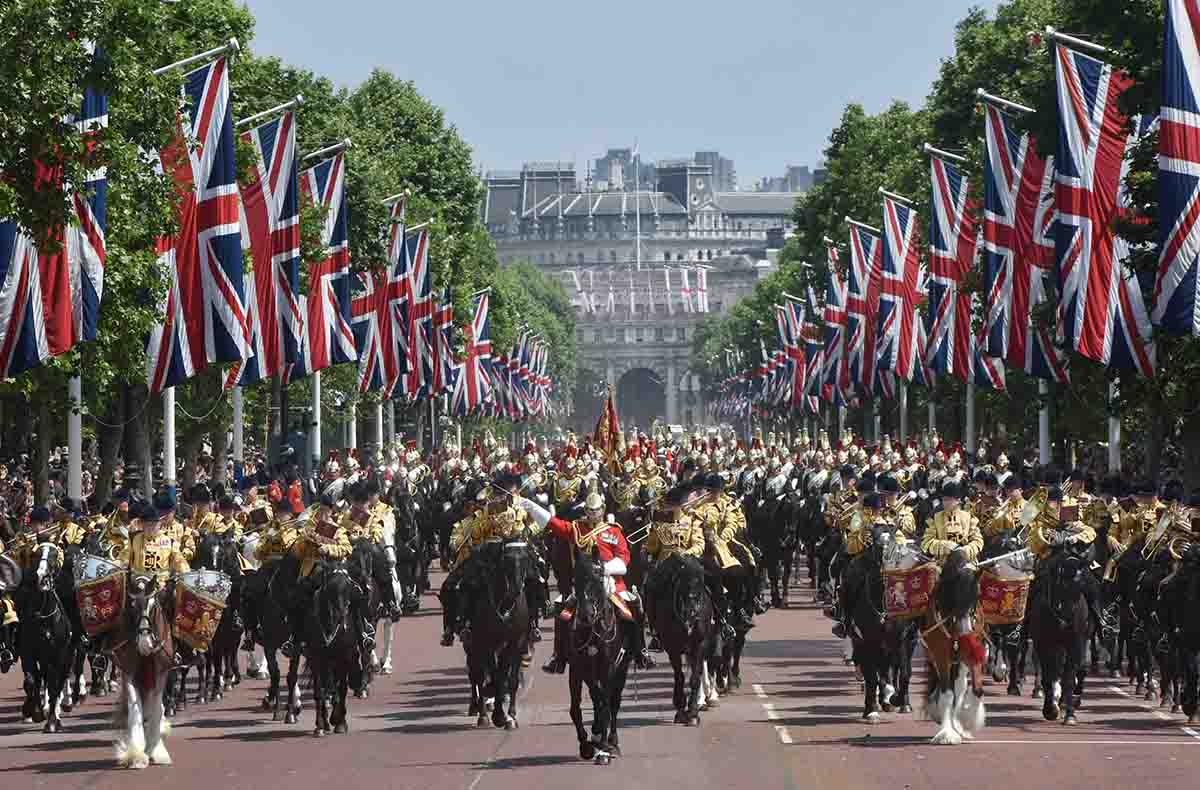
In the pubs around Westminster last night, gloomy Government advisors were drinking deep and shaking their heads. “It’s over,” was the phrase repeated again and again as they reflected on the fate of Liz Truss, the Prime Minister of Great Britain and Northern Ireland. Truss lasted just 45 days in the position. During her term in office, her Chancellor of the Exchequer and her Home Secretary were ousted. They are three of the four Great Offices of State. This represents the worst meltdown of British politics since the UK came into existence.
Truss was the figurehead no one wanted. For Conservative members she was the least-worst option in a Tory leadership election comprised of candidates lacking in both gravitas and intellect. The Times called her “a planet-sized mass of overconfidence and ambition teetering upon a pinhead of a political brain.” The assessment concluded with the damning words: “She’s crackers. It isn’t going to work.”
Her rivals and colleagues are hardly better. In the 12 years of Conservative Government, Britain has embarked on a programme of political self harm that has marginalised many of the responsible parliamentary figures. One Tory MP described Truss and her Cabinet as “talentless people putting their tick in the right box not because it’s in the national interest but because it’s in their own personal interest.”
The spark for this descent was the civil war within the Conservative party over Europe. David Cameron thought he could solve this internal battle by calling a referendum on Britain’s membership of the European Union. It was, the former Prime Minister believed, inconceivable that the electorate would vote to leave. He reckoned so without considering the migrant crisis in the run-up to the 2016 ballot. The nation elected to leave the EU by a small margin and all semblance of stability left the British body politic.
Cameron was replaced in 10 Downing Street by Theresa May. Many observers called her the worst Prime Minister in modern history. They were forced to review that assessment when Boris Johnson succeeded May. Truss trumps them all. As the economy began to shrink, so did the stature of the political leaders.
Truss earned a reputation for shifting her position whenever she came under pressure. Installing the queen of the u-turn as head of government was never going to be a successful strategy. Her big economic idea was to reduce taxation for the mega-rich but she was forced to backtrack on the policy when the pound collapsed and the financial markets went into a panic. Margaret Thatcher, the “Iron Lady” of the 1980s and a hero for Truss, once said “this lady’s not for the turning.” Truss spun like a top.
Where does this leave the government, the country and the Conservative Party. An uninspiring group of candidates will battle for the succession over the next week. Rishi Sunak, who warned Truss about the impact of tax cuts, is the favourite. Penny Mordaunt, who exudes serious Thatcher vibes, appears to be the most plausible statesperson to the wider electorate. Whoever takes over will inherit an impossible job.
A general election is two years away. A looming energy crisis is expected in the winter and already there are dark noises about potential power cuts. The last time Britain experienced blackouts was in the 1970s. Domestic energy bills have spiralled this year: they rose 54% in April and were expected to leap by 80% this month. A cold winter waits in the wings.
The Conservative Party is in tatters. Polls predict a Labour landslide. The problem is that Keir Starmer, the Labour leader, is a deeply uninspiring figure who has been content to sit on the sidelines and let the Tories self-destruct. This was also Labour’s policy before the Brexit referendum. It backfired badly and surrendered the political landscape to those on the right of the spectrum.
Starmer’s advisors say that there will be a raft of headline-grabbing initiatives unveiled in the run-up to the next election but some believe he is taking Napoleon’s dictum of never interfering with the enemy while he is making a mistake a bit too far.
Johnson is still lurking in the background, imagining he can rise from his political coffin and save the nation in true Winston Churchill style. Many across the country remain beguiled by Boris and appear prepared to forgive his dilettante attitude, his lack of respect for the truth and his chaotic bluster. His quasi-aristocratic glamour still carries some cachet in class-ridden Britain.
The carnage at Westminster will continue. The Conservative party is broken in a manner that appears irreparable. Meanwhile, the foundations of society are rotting in plain sight. The National Health Service is in crisis. Poverty is growing with even middle-class homeowners becoming forced to rely on food handouts. Foodbanks are one of the few growth industries in Britain. There are now more of them in the UK than McDonald’s restaurants. There are increasing fears of civil unrest. The comedy in Westminster is not so funny when its ramifications are played out on the streets of the nation’s beleaguered cities.
Abroad, Britain’s reputation is at an all-time low. Johnson’s catalogue of scandals and general approach left foreign diplomats aghast. Truss’s lightweight presence compounded the overseas distain felt for the Government. Truss’s brief Prime Ministership represents a nadir for the country. Sadly, Britain still has some way to go before it hits rock bottom. It’s not over yet, no matter what the pub chatter says.



